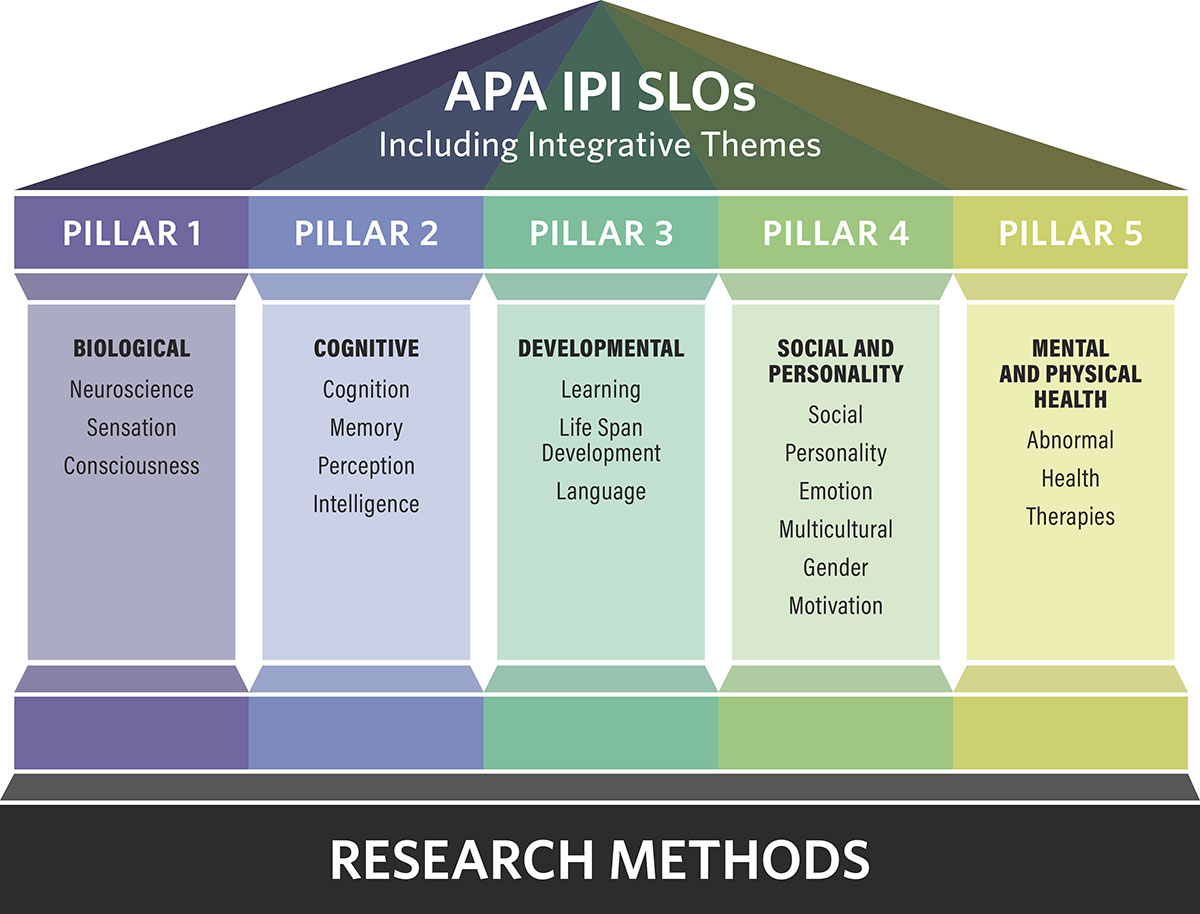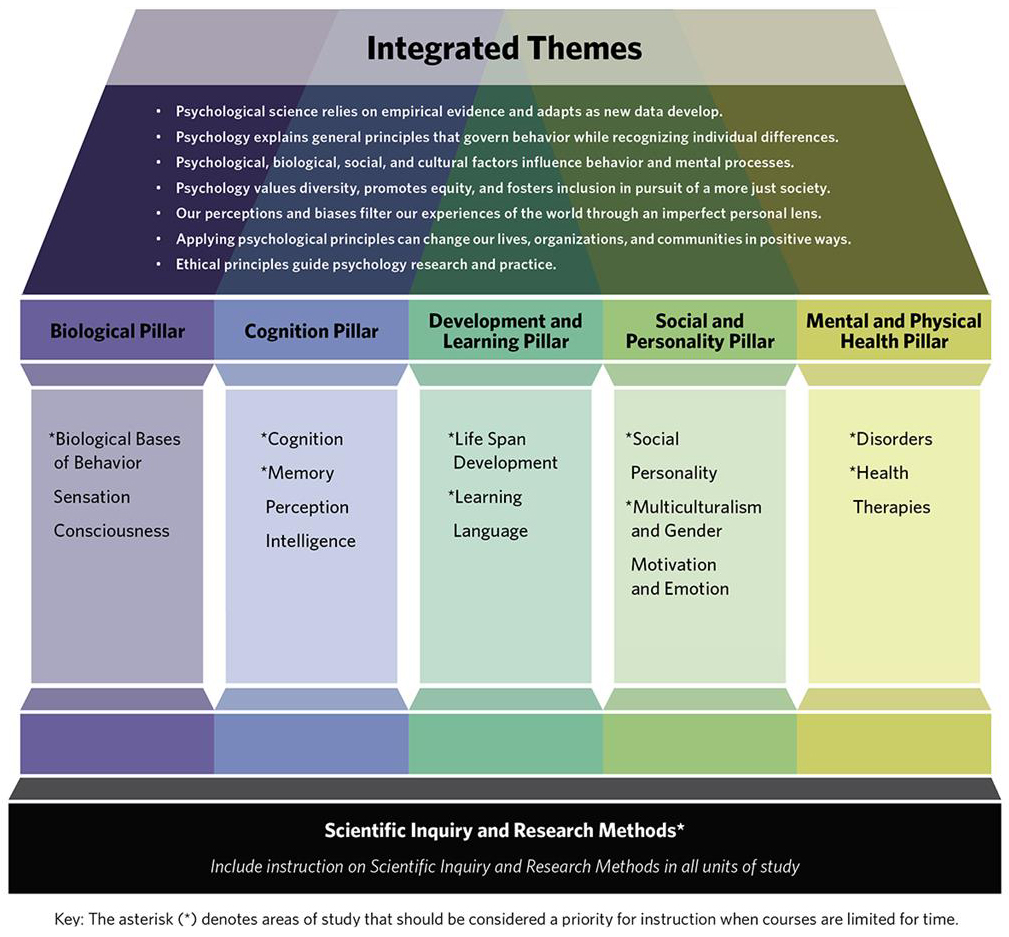As we begin our fascinating journey into the human mind, let’s first explore the vast field of psychology before delving deeper into cognitive psychology. We’ll take a quick and broad look on the entire field, introducing the five basic pillars of psychology and its fascinating seven themes based on the National Standards for High School Psychology Curricula by the American Psychological Association. This exploration holds a rich foundation for the detailed cognitive insights to follow.

Five Pillars of Psychology
https://www.apa.org/ed/precollege/undergrad/introductory-psychology-initiative

Integrated Seven Themes of Psychology
https://www.apa.org/ed/precollege/psychology-teacher-network/introductory-psychology/national-standards
Five Pillars of Psychology
- Biological: The biological pillar examines the physical and biological foundations of behaviour and mental processes. It includes the study of the brain, nervous system, genetics, and neurotransmitters, and how these biological components interact with environmental factors to influence behavior and cognition. This perspective is crucial in understanding the role of biological processes in mental health and behaviour.
- Cognitive: The cognitive pillar focuses on mental processes such as thinking, memory, perception, and decision-making. This area of psychology studies how people process and interpret information from the world around them, how they solve problems, and how these cognitive processes change over time. It is key to understanding how our mental processes shape our behaviour and interactions with the environment.
- Developmental: This pillar explores the growth and change that occurs throughout a person’s lifespan. It looks at how people develop physically, cognitively, emotionally, and socially from infancy through old age. This includes studying milestones in development, the impact of early experiences, and the processes of aging. It’s vital for understanding how people change and grow over time.
- Social & Personality: This area examines how social influences and personality traits shape behaviour and thought. It includes the study of social interactions, relationships, group dynamics, and the influence of culture and society on the individual. The personality aspect explores individual differences, personality theories, and the formation of self-concept and identity.
- Mental & Physical Health: This pillar focuses on the interplay between mental and physical health. It includes the study of psychological disorders, their causes, treatments, and prevention. This area also explores how psychological factors contribute to physical health and illness, and the impact of physical health issues on mental well-being. It is essential for understanding the holistic nature of health and the importance of psychological factors in overall well-being.
Together, these pillars provide a comprehensive framework for understanding the complexity of human behaviour and mental processes, emphasising the interconnectedness of biological, cognitive, developmental, social, personality, and health factors.
Seven Themes of Psychology
The seven themes of psychology are essential for the five pillars because they serve as guiding principles that bind together the diverse aspects of psychological science. Each theme represents a fundamental idea that is crucial for a holistic understanding of psychology. In essence, these themes serve as the foundational philosophies and goals that not only unify the five pillars but also drive the discipline of psychology towards a comprehensive, ethical, and socially responsible understanding of human behaviour and mental processes.
- Psychological science relies on empirical evidence and adapts as new date develop.
- Psychology explains general principles that govern behaviours while recognising individual differences.
- Psychological, biological, social, and cultural factors influence behaviour and mental processes.
- Psychology values diversity, promotes equity, and fosters inclusion in pursuit of a more just society.
- Our perceptions and biases filter our experiences of the world through an imperfect personal lens.
- Applying psychological principles can change our lives, organisations, and communities in positive ways.
- Ethical principles guide psychology research and practice.